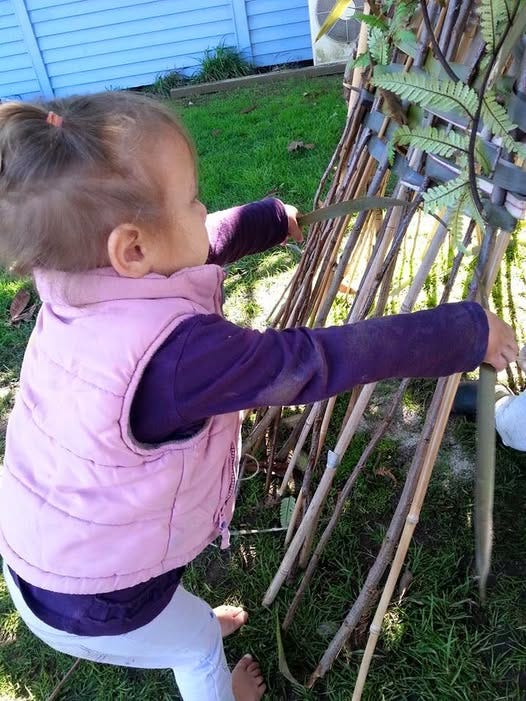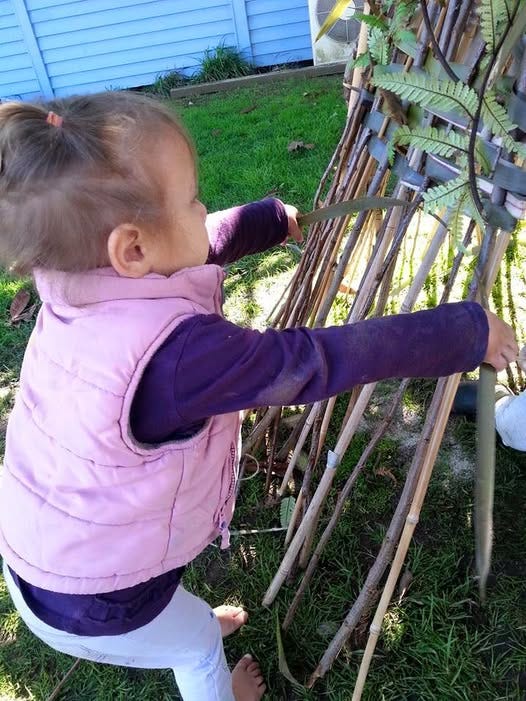Last one (for now!) - you can see how while I might have started on Sunday, it took me a little time to grind my way through each of these. Still, my grind - your gain! Feel free to use as a basis or cut and paste or whatever helps in terms of documenting your arguments against this legislative change.
This Bill, the Education and Training (Early Childhood Education Reform) Amendment Bill reads like a gift from Seymour to his major funders and supporters. It is at its core a way for the privately owned ECE sector to strip even more money from early childhood into their own pockets.
Ostensibly, the bill aims to improve the effectiveness of the early childhood education (ECE) regulatory system for children and parents, and to reduce the regulatory burden for service providers. It will amend the Education and Training Act 2020 to:
clarify the purpose, objectives, and guiding principles of regulating ECE services
establish a new statutory role, the Director of Regulation, with responsibilities for performing key regulatory functions in the ECE system
clarify responsibilities relating to the prescribing of licensing criteria.
The bill would partly implement the Government’s decisions resulting from the Regulatory Review of Early Childhood Education.
You can read the Bill in full and access the submission portal here. Submissions close September 1.
While not as terrible as some other Bills on the table, the proposed changes do little to improve the lives of families or improve access to ECE for disabled children.
While participation rates in ECE are high overall, and NZ has legislative and policy approaches that support disability inclusion and participation children in ECE, disabled pre-schoolers continue to face systemic barriers to inclusion. These include long wait times for support, limited workforce training, physical/sensory access gaps, and exclusory practices. Data gaps make inequities difficult to measure, but family testimony and reviews consistently describe uneven and unreliable inclusion.
The proposed legislative changes do not address this clear need or the gaps in ECE provision for disabled children.
I’ve themed some of my key concerns as follows:
Participation
The proposed objectives and guiding principles for ECE regulation do not (but should!) explicitly reference the rights of disabled children to access, inclusion, and participation. This is consistent with the UN Convention on the Rights of Persons with Disabilities (Articles 3, 19, 24, 31).
They should also reflect Te Tiriti o Waitangi obligations and the need for equitable outcomes for tamariki Māori, Pacific children, rural families, and other marginalised groups. The Bill does not strengthen Te Tiriti obligations in ECE, and in fact appears to weaken them. These changes are a missed opportunity to embed Māori perspectives, governance, and accountability in regulation. Erasing Māori perspectives leads to worse outcomes for all children.
Without explicit reference to inclusion, the framework may well look “tidier” but in practice it overlooks inequities in access and participation. It risks making ECE access worse for marginalised groups, including disabled children.
Establishing a Director of Regulation could potentially provide consistency and accountability. However, unless the role is given a statutory mandate to uphold accessibility, inclusion, and equity, it creates a purely bureaucratic compliance role, with meaningless outcomes and results for our children. Unless there is clear requirement to inclusivity, our children remain excluded from full participation in ECE.
Recommendation: Amend the Bill to explicitly embed disability inclusion, Te Tiriti obligations, and equity for all children within the new objectives and guiding principles.
Recommendation: Define in legislation that the Director is responsible for monitoring accessibility, inclusion, and equity in ECE, and for addressing complaints from parents about barriers to participation.

Accessibility
Current licensing criteria focuses predominantly on simple safety measures of physical safety and staff ratios. These are important but entirely insufficient to guarantee inclusive practice. Inclusive practice requires:
Accessible environments across a range of areas (e.g., physical, sensory, communication).
Staff training around supporting disabled children and diverse learners across a range of areas (e.g., vision, hearing, mobility, autism)
Recognition of cultural and whānau perspectives, particularly for Māori and Pacific families.
While there is an argument to be made to reduce unnecessary regulatory burdens on providers, this must not come at the cost of weakening expectations for accessibility, inclusion, or quality.
For many disabled children and marginalised families, regulation is the only mechanism that ensures their right to participate is upheld. This is noticeable when considering the actual, measurable, tangible outcomes of policy documents such as the Learning Support Action Plan (2019–2025), the UNCRPD (Article 24 requires inclusive education from early childhood), the NZ Disability Strategy (2019-2026), and the Disability Action Plan. Despite policy commitments to inclusion, implementation is patchy and inconsistent. Current practice does not meet required standards.
Legislative changes that strip out reference to inclusion and participation risk making things actively worse.
Recommendation: Explicitly safeguard inclusion and quality standards when streamlining regulation. Otherwise “reducing compliance burden” results in unsafe centres that do not undertake to uphold the rights of the child.
Recommendation: the legislation must embed accessibility and inclusive teaching practices within licensing criteria.
Workforce capability and specialist support
ECE teachers report low confidence in supporting disabled children due to lack of training in inclusive practice. Inclusion often depends on individual willingness. Wait times for Early Intervention Services (specialist teachers, SLTs, psychologists) are long; in some regions families wait 6–12 months. Families describe ECE inclusion as a “lottery” – highly dependent on service leadership and staff attitudes rather than systemic guarantees.
The Bill does not address any of these known and current gaps in workforce development, training, or capability. These core areas are central to the provision of high quality ECE. Without skilled and supported teachers, regulatory reform will not lead to meaningful improvements for children, especially those with additional needs.
This means there is a strong risk of providing low quality care, which leads to poorer outcomes for children overall. The Bill does not address the long wait times, uneven access to supports, or lack of funding for additional support needed to ensure disabled children can participate in ECE.
Recommendation: Include stronger requirements for workforce training in inclusive and culturally responsive practice; accessibility; and disability related training.
Extremely limited child voice
The Bill is largely structural and does not establish any mechanisms for child or family voice. The lived experiences of families is vital to inform regulation and accountability. This is a significant gap, particularly for disabled children and their whānau, whose voices are already overlooked.
Recommendation: Pause the Bill until adequate consultation with parents, whānau, disabled people’s organisations, and children can occur.
Data and Monitoring
The Bill does not provide clear requirements for data collection beyond compliance. This is most unfortunate and a missed opportunity. Without robust data, inequities in participation (e.g., for disabled children, Māori, Pacifica. and rural families) remain hidden. There is already limited data on disability and ECE. This Bill weakens requirements, where it should strengthen them.
Recommendation: Require the collection and publication of participation and outcome data disaggregated by disability, ethnicity, and other relevant measures, consistent with UNCRPD Article 31.
Final Comments
Unless disability and inclusion are explicitly embedded, disabled children and their families risk being left behind. ECE is not only about compliance, it is about giving every child the right to belong, learn, and thrive.
The Bill does not explicitly embed disability inclusion, accessibility, or workforce capability in its objectives or licensing requirements. While some structural improvements could standardise compliance, disabled children under 5 will not experience meaningful improvement in access, support, or inclusion. In some areas, the focus on reducing regulatory burden could make things worse.
This is a missed opportunity to strengthen the sector so that marginalised groups are fully included in the vision and practice of ECE; for legislation that upholds New Zealand’s obligations to deliver equitable and inclusive early childhood education.
A list of handy and relevant references:
CCS Disability Action. (2023). Pūrongo ā-tau / Annual Report 2022–2023. CCS Disability Action.
CCS Disability Action. (2025, July 2). Budget 2025: What it means for disabled New Zealanders [Press release]. CCS Disability Action. https://www.ccsdisabilityaction.org.nz/news/2025/july/budget-2025-what-it-means-for-disabled-new-zealanders
Education and Training Act 2020, No. 38. (2020). New Zealand Legislation. https://www.legislation.govt.nz/act/public/2020/0038/latest/whole.html
Education Review Office, Human Rights Commission, & Office for Disability Issues. (2022). A great start? Education for disabled children in early childhood education. Education Review Office. https://ero.govt.nz/news/a-great-start-education-for-disabled-children-in-early-childhood-education
Education Review Office. (2012). Inclusion of children with special needs in early childhood services. Education Review Office. https://ero.govt.nz/our-research/inclusion-of-children-with-special-needs-in-early-childhood-services
Education Review Office. (2022). Thriving at the start: Early childhood education participation, engagement, and transitions. Education Review Office. https://www.ero.govt.nz/our-research/thriving-at-the-start-early-childhood-education-participation-engagement-and-transitions
Hekupu. (2023). What is inclusion? A focus on disabled children and their families in early childhood education. Hekupu.
IHC New Zealand. (2025, July). The cost of exclusion [Report summary]. IHC New Zealand. https://ihc.org.nz/cost-exclusion-report-summary
IHC New Zealand. (n.d.). Standing up for your rights [Advice page]. IHC New Zealand. https://ihc.org.nz/standing-your-rights
Ministry of Education. (2019). Learning support action plan 2019–2025. Ministry of Education. https://www.education.govt.nz/our-work/overall-strategies-and-policies/learning-support-action-plan-2019-2025
Ministry of Education. (2019). Learning Support Action Plan 2019–2025. Ministry of Education. https://assets.education.govt.nz/public/Documents/Learning-support-action-plan-2019-2025.pdf
Ministry of Education. (2023). Early childhood education census 2023. Ministry of Education. https://www.educationcounts.govt.nz/statistics/early-childhood-education/participation
Ministry of Education. (2024, January 17). Briefing note: Update on priorities in the Learning Support Action Plan (2019–2025) (METIS No. 1320371). Ministry of Education. https://web-assets.education.govt.nz/s3fs-public/2024-11/1320371-Update-on-priorities.pdf?VersionId=opiEB5LYCUr7KMdErxrwcHZXNq5tS4Is
Morton, S. M. B., Atatoa Carr, P. E., Grant, C. C., Berry, S. D., Tautolo, E. S., & Lee, A. C. (2017). Now we are four: Early childhood education participation – Growing Up in New Zealand [At a glance summary]. Superu. https://thehub.sia.govt.nz/assets/documents/Now_we_are_four_AAG_FINAL.pdf
New Zealand Government. (2016). New Zealand disability strategy 2016–2026. Office for Disability Issues. https://www.odi.govt.nz/nz-disability-strategy
New Zealand Government. (2020). Education and Training Act 2020, No. 38. https://www.legislation.govt.nz/act/public/2020/0038/latest/LMS170676.html
Office for Disability Issues. (2016). New Zealand Disability Strategy 2016–2026 monitoring reports. https://www.odi.govt.nz/nz-disability-strategy/
Office of the Children’s Commissioner. (2020). Education matters to me: Experiences of disabled children. https://www.occ.org.nz/publications/reports/education-matters-to-me-disabled-children
Statistics New Zealand. (2018). Census 2018 data. https://www.stats.govt.nz/census
United Nations Committee on the Rights of Persons with Disabilities. (2016). General comment No. 4 (2016) on the right to inclusive education. United Nations. https://documents-dds-ny.un.org/doc/UNDOC/GEN/G16/229/12/PDF/G1622912.pdf
United Nations Committee on the Rights of Persons with Disabilities. (2016). General Comment No. 4 (2016) on the right to inclusive education. https://digitallibrary.un.org/record/1313836
Whaikaha (Ministry of Disabled People). (2020). Disability Action Plan 2019–2023: Bi-annual report (January–June 2020). Wellington: Whaikaha.
Zhang, K. C., & Li, Q. (2021). Early childhood inclusion in the land of [Aotearoa New Zealand]. Journal of the University of Glasgow Education Review, (online Preprint).






Thanks Bex. I love the succinct summaries and recommendations. It has always been Nationals MO to target those who are already marginalised so they can continue to oppress and ignore them. That strategy is neoliberal in terms of spending less through an algorithm of austerity ... and don't even start me on Te Tiriti o Waitangi. It is tiring to have to keep pushing back, but it is vital, so thanks for the tips on how to do that.
So helpful, thank you! You're doing a fantastic job - covering so many issues, and it's very much appreciated by those of us trying our best to keep up with the flood of consultations.